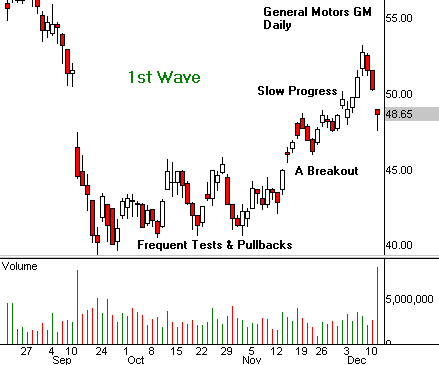Is forex market only for high risk high return short term players?
Friday, December 27, 2013
, Posted by Ryanita at 7:59 PM

One in 7 b
What about Commodity market? Is it also like forex market?
Answer
My majority of retail (i.e you and us, not big banks and hedge funds) are short to medium term traders. Retail Forex trading is not really suited to those wanting to take a long term view on the currency markets, this is due to the fact that the majority of retail traders make use of substantial leverage. By using leverage traders incur rollover costs, essentially leveraged traders have to pay interest. Typically this interest works out to LIBOR+3% divided by 365. Which can significantly eat into long term profits.
Many people think the Foreign exchange market is very high risk and very volatile. This is not really the case, the major currencies pairings are infact less volatile than some of the bigger stocks. What makes retail Foreign exchange particularly is the amount of leverage that traders can use. In the US leverage on stocks is limited to 2:1, but Forex traders can use up to 10:1 leverage. Leverage both increases your risk, as well as increasing the size of your returns. Making leverage a particularly dangerous tool.
The same goes for the commodities markets which can suit both long term and short term strategies. However, small individual traders tend to again trade shorter term than big institutional investors.
My majority of retail (i.e you and us, not big banks and hedge funds) are short to medium term traders. Retail Forex trading is not really suited to those wanting to take a long term view on the currency markets, this is due to the fact that the majority of retail traders make use of substantial leverage. By using leverage traders incur rollover costs, essentially leveraged traders have to pay interest. Typically this interest works out to LIBOR+3% divided by 365. Which can significantly eat into long term profits.
Many people think the Foreign exchange market is very high risk and very volatile. This is not really the case, the major currencies pairings are infact less volatile than some of the bigger stocks. What makes retail Foreign exchange particularly is the amount of leverage that traders can use. In the US leverage on stocks is limited to 2:1, but Forex traders can use up to 10:1 leverage. Leverage both increases your risk, as well as increasing the size of your returns. Making leverage a particularly dangerous tool.
The same goes for the commodities markets which can suit both long term and short term strategies. However, small individual traders tend to again trade shorter term than big institutional investors.
When buying currency via FOREX, how long can one hold onto the currency?

Billy Shat
Is it true that most forex brokers/ platforms charge fees for holding currency in your account, as to encourage a person to trade quickly and often?
Answer
Hi,
Charging a fee for holding your funds with a broker is that broker's decision.
Most of the brokers do not charge a fee for holding your balance, however some might charge an administrative fee.For example, if you stop trading on your account for 2-3 years without closing that account, your broker might have a clause that allows it to charge you an administrative fee.
To make sure if there is an fee charged for holding your funds with your broker, you will however need to contact your broker directly on this matter.
Another type of charge most brokers charge is the swap or the rollover. Each liquidity provider or broker charges a fee for holding a position open overnight. If you check the swap rates displayed on your broker's web site, you will notice that some are negative and some are positive.
If you hold a position open overnight, the negative swap rates will be deducted from your account equity at the end of the trading day, whereas the positive swap rates will be added to your account's equity.
If you wish to look at this from a different perspective, you might say that your liquidity provider/broker is encouraging you to trade instruments that have a positive swap rate.
Best Regards,
FXCC Representative
Hi,
Charging a fee for holding your funds with a broker is that broker's decision.
Most of the brokers do not charge a fee for holding your balance, however some might charge an administrative fee.For example, if you stop trading on your account for 2-3 years without closing that account, your broker might have a clause that allows it to charge you an administrative fee.
To make sure if there is an fee charged for holding your funds with your broker, you will however need to contact your broker directly on this matter.
Another type of charge most brokers charge is the swap or the rollover. Each liquidity provider or broker charges a fee for holding a position open overnight. If you check the swap rates displayed on your broker's web site, you will notice that some are negative and some are positive.
If you hold a position open overnight, the negative swap rates will be deducted from your account equity at the end of the trading day, whereas the positive swap rates will be added to your account's equity.
If you wish to look at this from a different perspective, you might say that your liquidity provider/broker is encouraging you to trade instruments that have a positive swap rate.
Best Regards,
FXCC Representative
Powered by Yahoo! Answers






Currently have 0 comments: